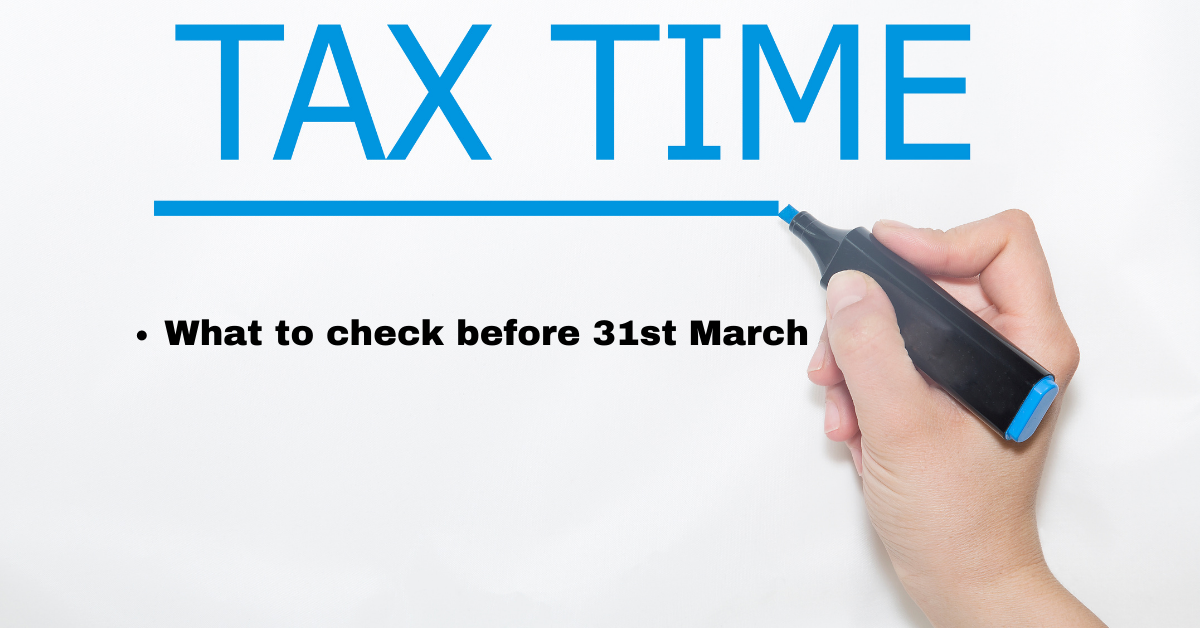
7 Things to Consider Before 31st March
Posted on 01 Mar 2023
Here are some key factors to think about before March 31st approaches.
- Higher income? Don’t forget provisional tax!
2022-23 was the first year in a while without Covid lockdowns or pandemic restrictions, meaning most businesses, especially those in the leisure or tourism sectors, enjoyed a better year.
If you’ve earned significantly more this year than in 2021-2022, congratulations! But you may want to consider an additional voluntary provisional tax payment to Inland Revenue. It could help to balance your tax payments with your growing turnover.
It’s better to chat with us about this sooner rather than later.
- Check your Covid support
The worst of the Covid crisis might be behind us, but there are still important things to remember if you have received government support since 2020.
- Make sure any Covid support requests were declared correctly and that records of your applications are on file to support any future audits.
- Ensure you’ve kept comprehensive records of any wage subsidies you’ve received or passed on to employees, as well as subsidies you’ve repaid.
Made an incorrect application?
If you received a Covid-19 support payment and weren’t eligible, you’ll need to let Inland Revenue (and us) know ASAP.
The quickest way to disclose an incorrect application is through Inland Revenue’s myIR online platform. There, you can send a message to Inland Revenue, which will investigate the eligibility of the payments and go through the next steps with you.
- Time to repay your Small Business Cashflow loan?
Review any lending received through the Small Business Cashflow Loan Scheme.
The scheme was extended to 31 December 2023, and businesses that have repaid their loans can re-borrow until that date. Under the scheme, a top-up loan allows businesses that have already accessed lending to draw down an additional $10,000 (or more for businesses that did not initially borrow the full amount available), with a new repayment period of five years (the first two years are interest-free).
Note when your two-year interest-free period expires. Can you afford to repay your loan early to avoid unnecessary interest payments?
- Watch your FBT
The Fringe Benefit Rate tax rose to 63.93% in April 2021, but nearly two years later, many businesses are yet to review the impact.
Before 2021, most employers used the single rate option to pay FBT on benefits provided at a flat rate of 49.25%. Have you reassessed the cost of increased FBT?
FBT is charged on a wide range of employee benefits, including company cars able to be used privately by employees right through to gift vouchers and flowers given to employees. Most employers don’t realise they have a large FBT bill until it’s too late. It can become even more painful if benefits have been given for a long time, as in addition to the FBT payable, penalties and use of money interest may also apply.
Review the impact of FBT on your business and ensure you don’t have backdated exposure. Talk to us about the impact of the 2021 rate rise and whether there are alternatives to offering employee perks, such as offering staff higher salaries or regular bonuses.
- Review your property portfolio
Major changes were introduced in 2021 limiting property investors’ ability to deduct interest payments on loans for residential homes from their tax bills. Interest on loans for residential properties purchased after March 2021 is no longer deductible. For residential investment properties bought before March 2021, there’s a phase-out of the old interest deductibility rules that will run until March 2025:
- Property owners can deduct 75% of interest costs until 31 March 2023
- After that date and until 31 March 2024, property owners can deduct 50%
- Between 1 April 2024 and 31 March 2025, investors can deduct 25%
- After 1 April 2025, investors can no longer deduct any interest.
Property investors need to calculate their interest phase-out for the coming tax year and talk to us about the potential impact in the years ahead. There are exemptions for ‘new builds’ and certain types of property. Please talk to us to see if these apply.
Do you have commercial buildings?
Remember that depreciation deductions for non-residential buildings were reintroduced for the 2021 and subsequent income years.
Have you bought or sold properties in the past year?
Tell us about the split between residential vs commercial, and the full details on new loans and credit lines so we can work out your obligations, including any possible impact of the brightline rules.
- Remember the new tax rules for trusts
The 2021-2022 income year saw new disclosure rules for domestic trusts, requiring trustees to prepare financial statements and provide extra information with their income tax returns.
Trustees need to disclose identification details such as name, date of birth, IRD Number and country of residence of all historical settlors where reasonably available. Make sure you’re up to speed with the requirements.
- Consider asset write-offs and sales
Review fixed assets and identify any that can be written off.
Assets purchased on or after 17 March 2021 and below the value of $1,000 can be written off immediately (in most cases).
Make sure assets purchased or sold as part of a sale/purchase agreement align with the purchase price allocation in the relevant agreement. We can go over Inland Revenue’s approach to this with you if you’d like more detail.


